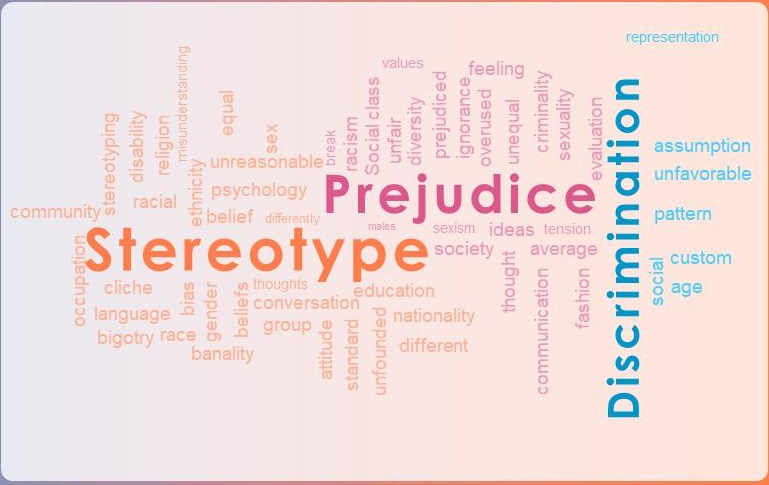Navigating Social Cognition: Perception, Schemas, and Heuristics
Our minds are continuously at work, interpreting the world around us through a process known as social cognition in the complex world of human interaction. Sensation, perception, and schemas are the three main elements of this cognitive process, and they all work together to help us comprehend and manage the complexity of social circumstances. In this blog, I’ll discuss about them.
Sensation and Perception: The Building Blocks of Cognition
I hope you know the famous detective Sherlock Holmes and his friend Watson. So, think of your senses as Watson, gathering clues from the world around you. Sensing is Watson picking up details like the aroma, the sounds, and the warmth. Now, comes Sherlock, your brain's perception. He takes these clues and crafts a story. He tells you it's a café – cozy, lively – where you can savor a cup of coffee and chat with friends. Note that both these events are essential for solving any mystery.
Our senses of sight, hearing, touch, taste, and smell are used in the initial reception of raw sensory data, called sensation. The basis for how perception creates meaning is this sensory information. Perception turns the unprocessed information gathered by our senses into a logical and understandable picture of the outside world.
Well, I talked about sensation and perception but there is one thing that starts this process, i.e. information but how does our brain work with this information? Let’s discuss two simplistic ways, schemas and heuristics.
Schemas: Your Brain's Cheat Codes
Consider how much information you come across on any given day, just looking around your bedroom, there are hundreds of objects, smells, and sounds. How do we simplify all this information to attend to what is important and make decisions quickly and efficiently? In part, we do it by forming schemas of the various people, objects, situations, and events we encounter.
Schemas are like cheat codes that help you sail through challenges. They're mental templates you've collected from past experiences. Meeting someone new? Your brain flips through the "first impressions" schema, guiding your actions and expectations based on past encounters.
Almost anything can be the subject of a schema, including specific individuals (person schemas), oneself (self-schemas), and recurrent events (event schemas, or scripts). These various kinds of schemas are all beneficial in different ways. For instance, event schemas let us move through unfamiliar circumstances quickly and easily. If there were a script for dining out, it would state that one should wait to be seated by the host or hostess, that one should order food from a menu, and that one should pay the bill at the conclusion of the meal.
Heuristics: Your Cognitive Compass
Heuristics are a mental shortcut or rule of thumb that reduces complex mental problems to more simple rule-based decisions.
In practice, we use various kinds of heuristics,
The Availability Heuristic:
Let's say you've heard that a few high-profile crimes have recently occurred in a certain area. The availability heuristic may make you assume that the neighbourhood is more unsafe than it actually is, even if crime statistics indicate that the rate of crime there is not considerably greater. The few crimes you have heard about are vivid, which makes them more readily available in your mind and shapes your perception.
The Representative Heuristic:
Suppose you meet someone who is dressed in a professional suit, and carrying a briefcase. The representativeness heuristic might lead you to assume that this person is a lawyer or a business executive. This mental shortcut relies on our tendency to categorize people or objects based on their resemblance to a familiar prototype. However, it can lead to errors, as appearances can be deceiving – for example, the person earlier might actually be an artist or a musician.
Finally, in a world overflowing with information every day, our minds have tools to help us handle it all. Beyond categorizing and counting, we're good at foreseeing the future. We use these predictions to make decisions. Like when we pick what to eat for dinner, we wonder, "Will I be happy with this choice?" This guessing game guides us. And the schemas and heuristics are exactly this guessing game. Furthermore, these are just the initial building blocks. As we interpret the world around us, these cognitive tools equip us to comprehend, respond to, and flourish within the intricate nature of human interaction.




What a wonderfully insightful exploration of the intricacies of social cognition! Your ingenious and effective use of Sherlock Holmes and Watson to represent sensation and perception is a wonderful technique to help us understand the idea. The discussion on schemas and heuristics as our brain's cheat codes and cognitive compass adds a practical dimension to understanding how we navigate the complex world of human interaction. Your blog truly sheds light on these fundamental building blocks of cognition in a clear and engaging manner. Looking forward to more enlightening reads from you!
ReplyDeleteThank you so much for your thoughtful and encouraging comment! I'm thrilled that you found my exploration of social cognition insightful. It's always motivating to receive such positive feedback.
ReplyDeleteHonestly, I'm in awe of how you've built the blog, starting with explaining Sensation and Perception through the amazing example of Sherlock and Watson! The following sections on Schemas and Heuristics, and how they prove to be hacks to make sense of a situation completely are truly enlightening as well. Good job!
ReplyDeleteHey, Thanks for the kind words Satyapragnya
DeleteExplained heuristics, perception and schemas quite nicely!!
ReplyDeleteImportant aspects of social cognition!!
Thanks!! Arpit
Delete